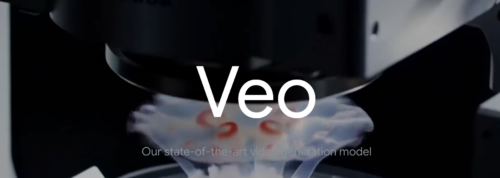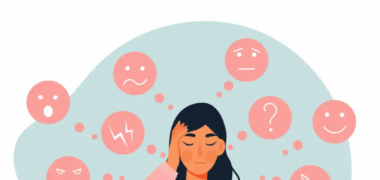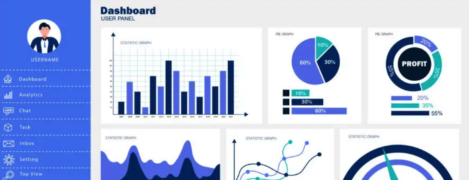How Generative AI is Revolutionizing Marketing Campaigns

Marketing campaigns are at the heart of a brand’s ability to connect with its audience, tell compelling stories, and drive sales. Traditionally, crafting effective campaigns required extensive time, resources, and human creativity. With the rise of Generative AI (GenAI), marketers now have a powerful ally that is reshaping how campaigns are conceived, executed, and optimized.
Generative AI leverages advanced algorithms to create original content, from text and images to videos and even marketing strategies. Here’s how it is revolutionizing the marketing world and enabling brands to reach new levels of creativity, efficiency, and personalization.
1. Personalized Marketing at Scale
Generative AI enables marketers to deliver highly personalized content to individual customers without manual effort. By analyzing customer data, preferences, and behavior, GenAI can create tailored marketing materials that resonate deeply with target audiences.
Applications:
- Dynamic Email Campaigns: AI tools like Jasper or OpenAI can craft unique email copy for millions of users, factoring in purchase history, browsing patterns, and demographic data.
- Custom Product Recommendations: E-commerce platforms can use GenAI to generate personalized landing pages or product descriptions, increasing conversion rates.
- Social Media Ads: AI-generated ad copy and visuals can be tailored for specific user personas, delivering higher engagement.
Example:
A fitness brand could use GenAI to send personalized workout tips and product recommendations based on a customer’s fitness goals and past purchases, creating a stronger connection and driving loyalty.
2. Enhanced Content Creation
Creating engaging, high-quality content has always been a bottleneck for marketing teams. Generative AI drastically reduces the time and cost of producing text, images, and even video content while maintaining a high standard of quality.
Applications:
- Blog Writing: GenAI tools can produce long-form articles optimized for SEO in minutes, saving writers from hours of research and drafting.
- Visual Content Generation: AI platforms like DALL·E and MidJourney can create custom images and graphics tailored to campaign needs.
- Video Creation: Generative AI tools like Runway or Pictory can help generate promotional videos, explainers, or product demos with minimal input.
Example:
A startup launching a new product can use AI to generate a promotional video, complete with animations and voiceovers, in days instead of weeks—perfect for tight budgets.
3. Real-Time Campaign Optimization
One of the most significant advantages of Generative AI is its ability to analyze campaign performance in real time and suggest or implement improvements. This ensures marketing budgets are used efficiently and campaigns achieve maximum ROI.
Applications:
- A/B Testing: GenAI can automatically generate multiple ad variations, test them with different audiences, and identify the best-performing content.
- Performance Insights: AI tools like AdCreative.ai can analyze engagement metrics and suggest adjustments to campaign elements like keywords, visuals, or targeting.
- Dynamic Updates: Based on audience responses, AI can modify live campaigns, such as changing headlines, visuals, or CTAs to better align with audience preferences.
Example:
A SaaS company running a Google Ads campaign can use AI to continuously refine its ad copy and bidding strategy, ensuring it outperforms competitors while minimizing cost-per-click.
4. Automating Mundane Tasks
Marketing teams often spend countless hours on repetitive tasks like generating reports, resizing visuals, or scheduling social media posts. GenAI tools can handle these tasks, freeing up marketers to focus on strategy and creativity.
Applications:
- Content Resizing: AI can automatically resize and format visuals for various platforms like Instagram, LinkedIn, and Twitter.
- Automated Reports: GenAI can generate comprehensive campaign performance reports with actionable insights.
- Social Media Scheduling: Tools like Buffer and Hootsuite, enhanced with AI, can automatically curate and post content at optimal times.
Example:
A digital marketing agency can save hours each week by using AI to schedule and optimize posts across multiple platforms, ensuring consistent brand presence.
5. Hyper-Personalized Customer Journeys
Generative AI enables brands to create seamless, hyper-personalized customer journeys by automating interactions at every touchpoint. This not only improves customer satisfaction but also increases the likelihood of conversion.
Applications:
- AI-Driven Chatbots: AI-powered chatbots like ChatGPT can engage customers with personalized, conversational responses, guiding them through the buying process.
- Automated Lead Nurturing: AI can create personalized drip email campaigns that respond dynamically to customer actions.
- Predictive Customer Insights: GenAI can anticipate customer needs and proactively suggest solutions or products.
Example:
A luxury travel agency can use AI to suggest curated travel itineraries based on a customer’s past vacations and preferences, creating a VIP experience that builds brand loyalty.
6. Cost-Effective Market Research
Understanding market trends and consumer sentiment is critical for successful campaigns. Generative AI can process massive datasets, identify trends, and generate actionable insights at a fraction of the time and cost of traditional methods.
Applications:
- Competitor Analysis: AI can generate detailed reports comparing a brand’s campaigns to its competitors, highlighting strengths and weaknesses.
- Consumer Sentiment Analysis: Tools like Hugging Face can analyze social media mentions, reviews, and forums to gauge public perception.
- Trend Forecasting: AI can predict emerging trends, allowing brands to stay ahead of the curve.
Example:
A fashion retailer can use GenAI to identify upcoming seasonal trends and tailor its campaigns to highlight trending styles before competitors.
7. Creative Collaboration with Humans
Generative AI is not a replacement for human creativity—it’s a partner. By handling repetitive tasks and offering suggestions, AI empowers marketers to focus on big-picture strategy and innovation.
Applications:
- Brainstorming Ideas: AI tools can generate creative taglines, slogans, and campaign themes to inspire marketers.
- Co-Creation: Marketers can collaborate with AI to refine content, ensuring it aligns with brand tone and goals.
- Real-Time Feedback: AI tools can provide instant feedback on content quality, suggesting improvements for clarity, engagement, or SEO.
Example:
A beverage company brainstorming a summer campaign could use AI to suggest catchy taglines like “Sip Into Summer Bliss” or “Chill Vibes, One Drink Away,” giving the creative team a starting point.
8. Ethical Considerations and Transparency
As AI-generated content becomes more prevalent, brands must address ethical concerns and ensure transparency. Authenticity and trust are paramount in marketing, and customers should know when AI is involved.
Best Practices:
- Clearly disclose AI-generated content where appropriate.
- Regularly review AI outputs to avoid misinformation or biases.
- Use AI responsibly to enhance, not replace, human connection.
Example:
A brand could use disclaimers like, “This visual was created with the help of AI technology,” to maintain transparency without diminishing customer trust.
Conclusion: The AI-Powered Marketing Revolution
Generative AI is transforming marketing campaigns by enabling unprecedented levels of personalization, efficiency, and creativity. It empowers marketers to deliver targeted, data-driven content while automating routine tasks, freeing up time for strategic innovation.
However, the key to success lies in using AI as a collaborative tool, ensuring ethical practices, and focusing on unique customer experiences that stand out in a crowded marketplace.
As this technology continues to evolve, the brands that embrace it strategically will be the ones to define the future of marketing.
Are you ready to harness the power of Generative AI for your marketing campaigns? Share your thoughts or success stories in the comments!







